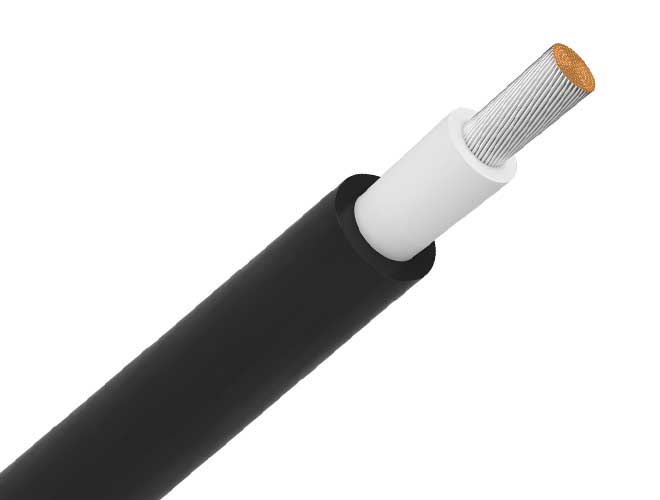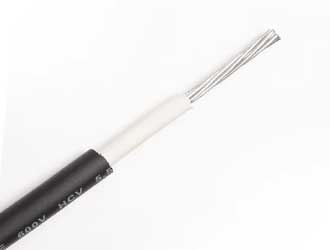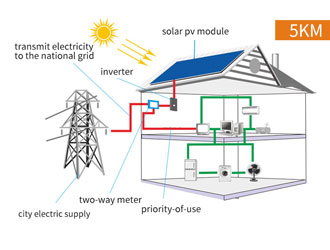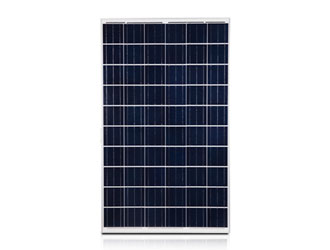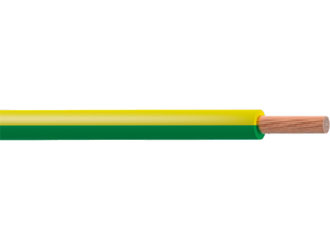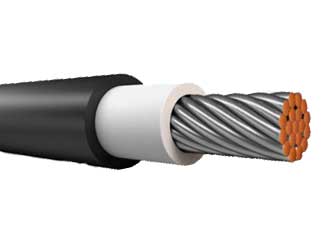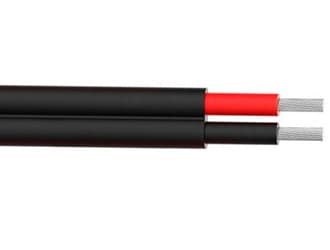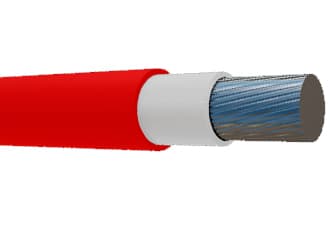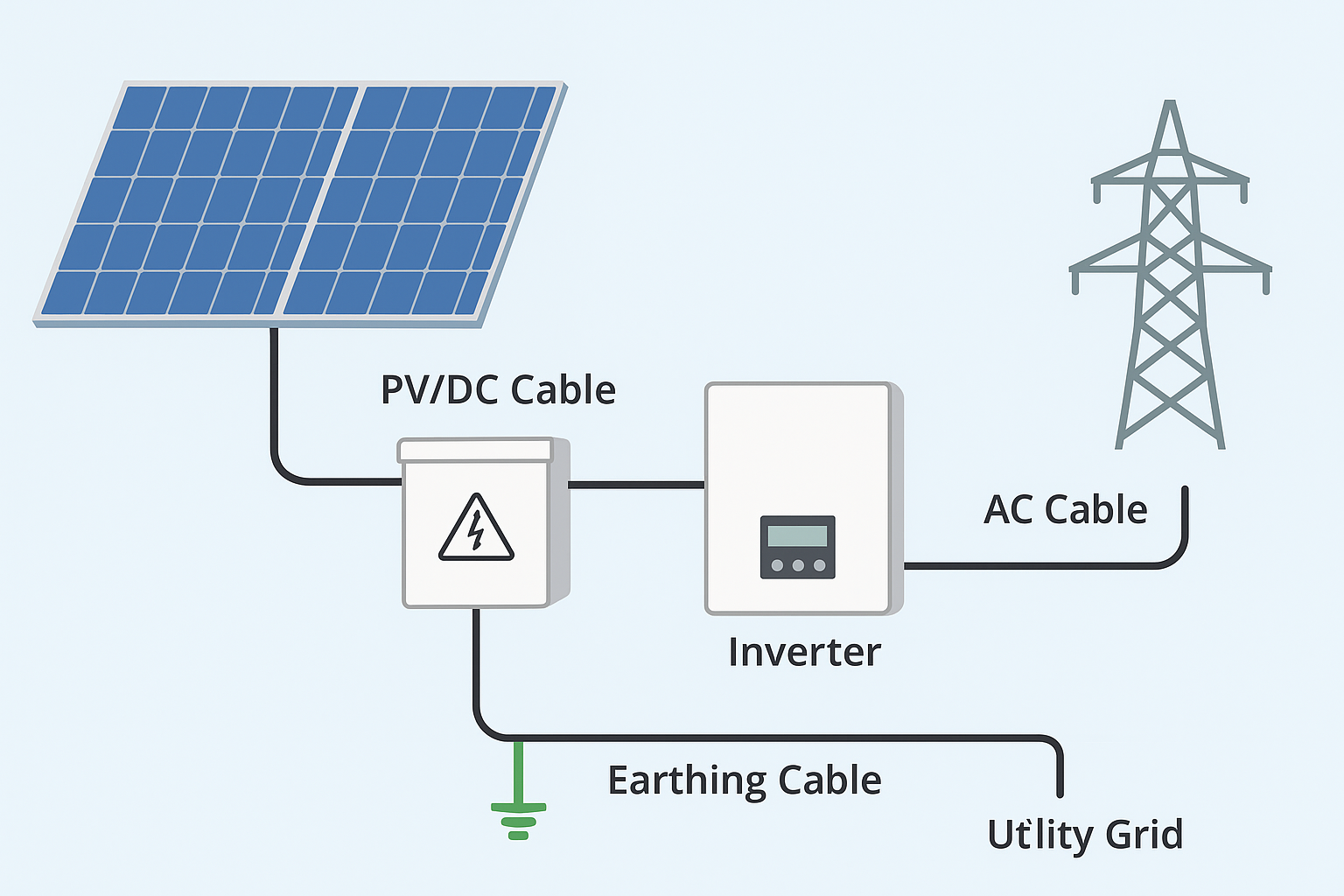
Solar Cable & Wire |PV WireQingzhou's solar cable can be used in solar projects. Qingzhou cable will help you choose the right solar cables and wires, PV wires. Our PV wires are tinned copper and double XLPO. We can produce different solar cable types such as solar cable 4mm, solar cable 6mm, and mc4 cable. We also can manufacture solar battery cables. Solar cables are interconnection cables for photovoltaic power generation. PV Cables connect solar panels to other electrical components of the photovoltaic system. Solar wires are designed to be UV-resistant and weather-resistant. Photovoltaic cables can be used over a wide temperature range and are usually placed outdoors.
Main Cable Types in a Solar Photovoltaic (PV) System
| Cable Type |
Function / Application |
Typical Voltage |
Features |
| PV/DC Cable (e.g. PV1-F, H1Z2Z2-K) |
Connects solar panels to combiner box or inverter DC input |
600/1000V or 1500V DC |
UV-resistant, weatherproof, double-insulated, halogen-free |
| AC Cable |
Connects inverter AC output to distribution board or grid |
0.6/1kV AC |
Standard power cable (e.g. YJV, NYY, H07RN-F) |
| Earthing (Grounding) Cable |
Bonds metal parts and provides safe grounding |
— |
Green-yellow color, corrosion-resistant |
| Communication Cable |
Used for monitoring and data transmission between inverters and control systems |
300/500V or data-grade |
RS485 cable or Ethernet cable (Cat5e/Cat6) |
| Internal Connection Cable |
Used inside combiner boxes for fuses, breakers, etc. |
1000–1500V DC |
High-temperature and flame-retardant rated |
Our Solar cable products comply with EN 50618 to British standards, US standard UL4703, and the TUV certified cables. As with the TUV-certified cables, the EN50618 solar cable range has undergone a rigorous manufacturing and testing audit program to deliver a quality cable with an anticipated lifespan of circa 25 years, Including:
| TUV 2PfG 1169 PV1-F Solar Cable |
EN 50618 H1Z2Z2-K Solar Cable |
UL4703 PV Wire 600V and 2KV |
Specifications and Parameters:
Voltage Rating: 600/1000V
Conductor Material: Copper
Insulation Material: XLPE (Cross-linked polyethylene)
Temperature Rating: -40°C to 90°C
Outer Sheath Material: XLPE
UV Resistant: Yes
Flame Retardant: Yes
Certifications: TUV 2PfG 1169, CE, RoHS |
Specifications and Parameters:
Voltage Rating: 1.5 kV (AC), 1.8 kV (DC)
Conductor Material: Tinned copper
Insulation Material: Halogen-free cross-linked compound
Temperature Rating: -40°C to 90°C
Outer Sheath Material: Halogen-free cross-linked compound
UV Resistant: Yes
Flame Retardant: Yes
Certifications: EN 50618, CPR, RoHS |
Specifications and Parameters:
Voltage Rating: 600V (AC), 2000V (DC)
Conductor Material: Copper or aluminum
Insulation Material: XLPE or EPR (Ethylene Propylene Rubber)
Temperature Rating: -40°C to 90°C
Outer Sheath Material: XLPE or EPR
UV Resistant: Yes
Flame Retardant: Yes
Certifications: UL4703, NEC Article 690, RoHS |
Advantages of PV wire:
1. Dual wall insulation. Electron beam cross-linked
2. Excellent resistance to U.V, oil, greases, oxygen, and ozone
3. Excellent resistance to abrasion
4. Halogen-free, flame retardant, low toxicity
5. Excellent flexibility and stripping performance
6. High Voltage and Current carrying capacity
The difference between Solar cable and normal cable.
Solar panel cable is UV resistant and has a wider temperature range. The life service for PV wire is 25 years. The insulation is double XLPO. Solar panel wire is suitable for outdoor and often in hot areas. PVC cable is not UV resistant. The working temperature is 90 degrees to -10 degrees. PVC cable only be used indoors. The conductors for PVC cables are copper.




